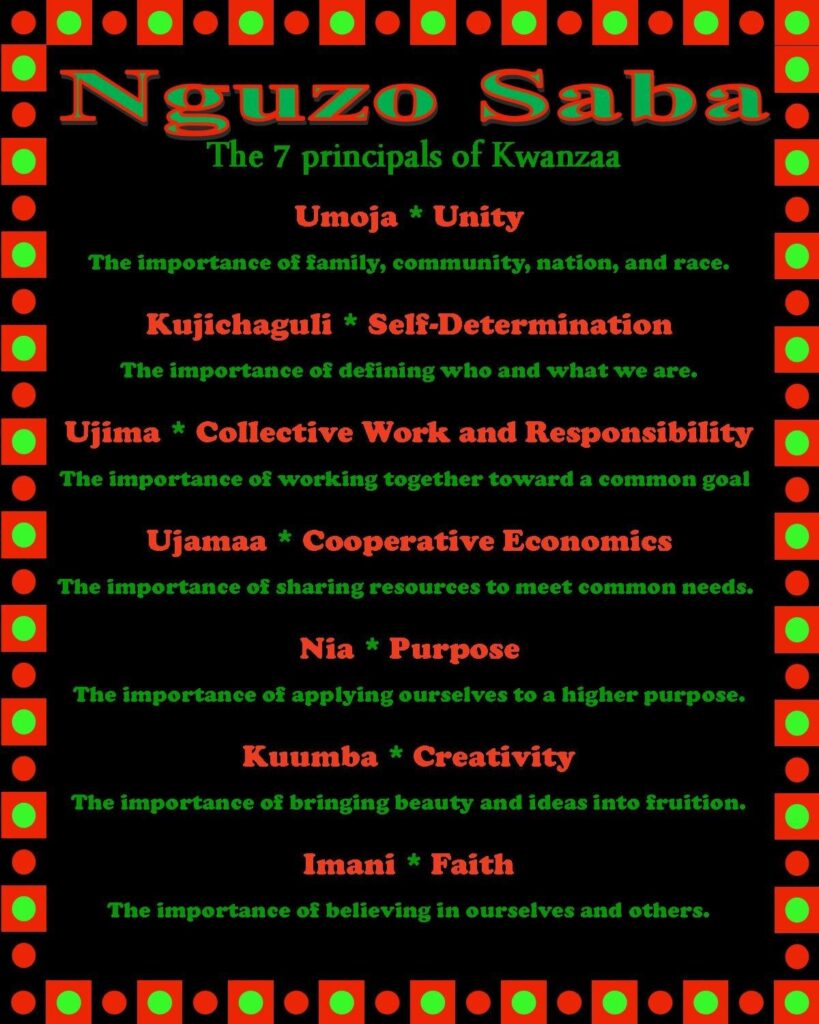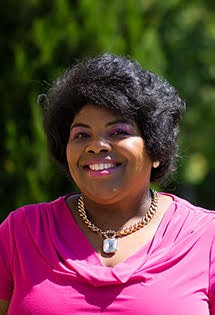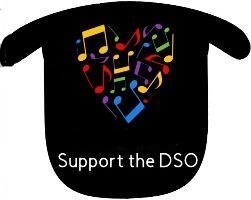Monday Musicale with the Maestro – December 28, 2020 – A Month of Holiday Music, Part 4: “The Kwanzaa Song”
Kwanzaa is a modern holiday celebrated from December 26th through January 1st. It was created in 1966 by Maulana Karenga (1941- ), an African American who was deeply concerned that only a relatively small percentage of Black people knew about their African heritage.
I can certainly attest to this from my own experience. I vividly remember that during my entire public-school history from 1960-1972, the subject of Africa was never studied, not even for a single day. As a young Black teen, I was grateful for this fact because the only thing I knew about the origin of “my people” came from the fictional Tarzan films, which depicted a humiliating vision of Africa as a degraded continent of black “savages” where the “King of the Jungle” is a white man. These films (1918-2016) brainwashed millions of Americans into believing this bizarre supremacist fantasy: an entire continent of Blacks ruled by a supposedly superior human, who just happens to be a white male—and the lost heir of British nobility (the colonizers), no less.
A quite different view of the African experience is to be found in Alex Haley’s book Roots (1976) and the 1977 TV mini-series based on it. For the first time in popular culture, this series made visible both the fates and the origins of tens of millions of Africans who were seized from their own rich dreams, cultures, and traditions to be sold as slaves in America. An unprecedented number of Americans (130 million) saw the stark reality of this evil on their televisions—some confronting for the first time this diseased outgrowth of American exceptionalism. The benefit of Roots’ success was that it coaxed our country to begin addressing a topic that was taboo yet woven implicitly into the very fabric of everyday life in America.
Obviously, we have a long way to go, as many still do not grasp the origins of racial unrest, white supremacy, and prejudice. Educational correctives will still be needed, especially to restore our vision of the rich cultures that were ransacked (quite literally) by the slave trade. This is one reason I hope Kwanzaa will remain a permanent part of contemporary American culture.
The word Kwanzaa refers to “the first fruits of the harvest,” and the holiday is inspired by centuries-old African festivals honoring the harvest season. During its first two decades, the holiday slowly gained popularity as African Americans began to explore and embrace their culture. Then, in 1997, Karenga wrote a book titled Kwanzaa: A Celebration of Family, Community and Culture, in which he urged ALL Americans to embrace this holiday as a chance to explore the glories of African culture and traditions through the centuries.
In 2009 several attractive aspects of this holiday led me to write the first orchestral work paying tribute to Kwanzaa. I appreciate its educational goals (the seven admirable principles enumerated below). I also value its inclusivity. Like Karenga, I see this as an American holiday that all may celebrate, much as many Jews celebrate the secular aspect of Christmas and as people wear green and celebrate their Irish roots on St. Patrick’s Day. Not least, I welcome the concept that any gift given during the Kwanzaa holiday must be one that you have made yourself. This is a welcome counterbalance to the rampant commercialism now overtaking too many celebrations of Christmas in America.
These are the Seven Principals of Kwanzaa:

My piece, “The Kwanzaa Song,” depicts a party of friends and family who have gathered to honor Karamu (the last day of Kwanzaa), which is celebrated with music, food, and libations. The work features a full orchestra and a soprano part, for which I also wrote the lyrics.
It seemed to me that a piece paying homage to Black culture should include a reference to African American spirituals. These are soulful documents that for centuries have had the power to heal, console, and uplift. As someone who can trace his ancestry back to Georgian slaves, I have always been deeply moved by these poignant songs. The piece begins with my adaptation of a spiritual (“Farewell, Brother Billy”) which I found in a book titled Slave Songs of 1876. The melody is played by the orchestra at the very beginning and near the end of the work, after which the piece concludes with the soprano’s rendition (using my own lyrics).
The introduction of the work has a contemplative and reverent atmosphere. Then the tempo accelerates, and the party takes off with singing, dancing, and original music that has a “Blatino” flavor (a mixture of Black and Hispanic elements.) I love all of my “musical children,” but I confess that I have a certain fondness for this melody, arguably the “catchiest” I have ever written. At the end, “Farewell, Brother Billy” returns and is transformed into a hymn to brotherhood.
The soprano for our featured performance is Brandi Hancock, who has performed with the Durham Symphony Orchestra several times with great success. Brandi Q. Hancock is a classically trained Soprano from Cleveland, Ohio and a graduate of Shaw University in Raleigh, NC. She is also an instructor of music for persons with intellectual and developmental disabilities, with inclusion as her core philosophy. She takes her 23 years of performance and pedagogy into her community and around the world, developing performers with integrity and positive character. Brandi currently resides in Wake Forest, NC. She recently launched a multimedia company Studio Q. Media Productions, where she presents a series of concerts, conversations and commentary. Brandi Q. released her first independent solo project Proclamation: The Truth in January of 2019.

The Kwanzaa Song
William Henry Curry, Composer and Conductor
Durham Symphony Orchestra
Soloist: Brandi Hancock
As we come to the end of this year, I would like first to honor the memory of those who are no longer with us at the end of this challenging journey called 2020. I would also like to voice my hope for the coming year.
Amidst the turbulent late 1960s, we witnessed a renewed interest in religion—though sadly, I’ve seen little evidence of that as we enter the last year of this decade. To be sure, the word religion means different things to different people, so I will briefly mention what it has meant to me since my born-again experience in April 1995. I was at the time a “lost soul,” and then it was revealed to me that life must include being a consistent and fervent “earth angel for others.” Later, I paired that realization with another taken from Shakespeare’s Henry V, Act 2, Scene 4, when the Dauphin advises the French King to know his worth and stand his ground, saying, “Self-Love, my liege, is not so vile a sin as self-neglecting.” We are all “children” of God and so we must be “adults” for others, but also for ourselves. I always believe that God is judging me, smiling at something good I have done for myself or others—or if I do the opposite, preparing for me a wake-up call that will chastise me towards living up to the better angels of my nature.
We’ve seen during this horror-show political year an unending parade of professional deceivers who are dishonoring themselves, us, and American democracy. And they believe they are getting away with it—that the end justifies the means. I have to believe in the redemption of fools, including myself. So, in 2021, I fervently hope that every lost soul will find a religion, a personal God, or a humanist doctrine that will lead them to being worthy of their good fortune to have been born American. For here, despite setbacks, we are at heart a good and progressive people.
William Henry Curry
Music Director
Durham Symphony Orchestra
Recording Engineer: Max Wang
Comprehensive Editor (Text): Suzanne Bolt
Copy Editors: Marianne Ward and Tina Biello
Digital Layout and Publication: Tina Biello and Marianne Ward
Celebrating Maestro Curry’s 50 years conducting
& 11 years with the Durham Symphony!

Individuals may take a $300 charitable deduction even without itemizing. Individuals who do itemize may still take a charitable deduction up to 100% of their AGI (adjusted gross income). See the full details on IRS.gov
There is still time to make a year-end contribution to the DSO! Consider these options or by mailing your gift to: Durham Symphony Orchestra, PO Box 1993 Durham, NC 27702. You may also make an online gift here on our website.
Be sure to consult your tax advisor on donation strategies that make the most sense for you. This reminder about the CARES Act and its provisions does not constitute tax advice.
Funding is provided (in part) by the Durham Arts Council’s Annual Arts Fund, the N.C. Arts Council (a division of the Department of Natural and Cultural Resources), and a grant from the Triangle Community Foundation.



